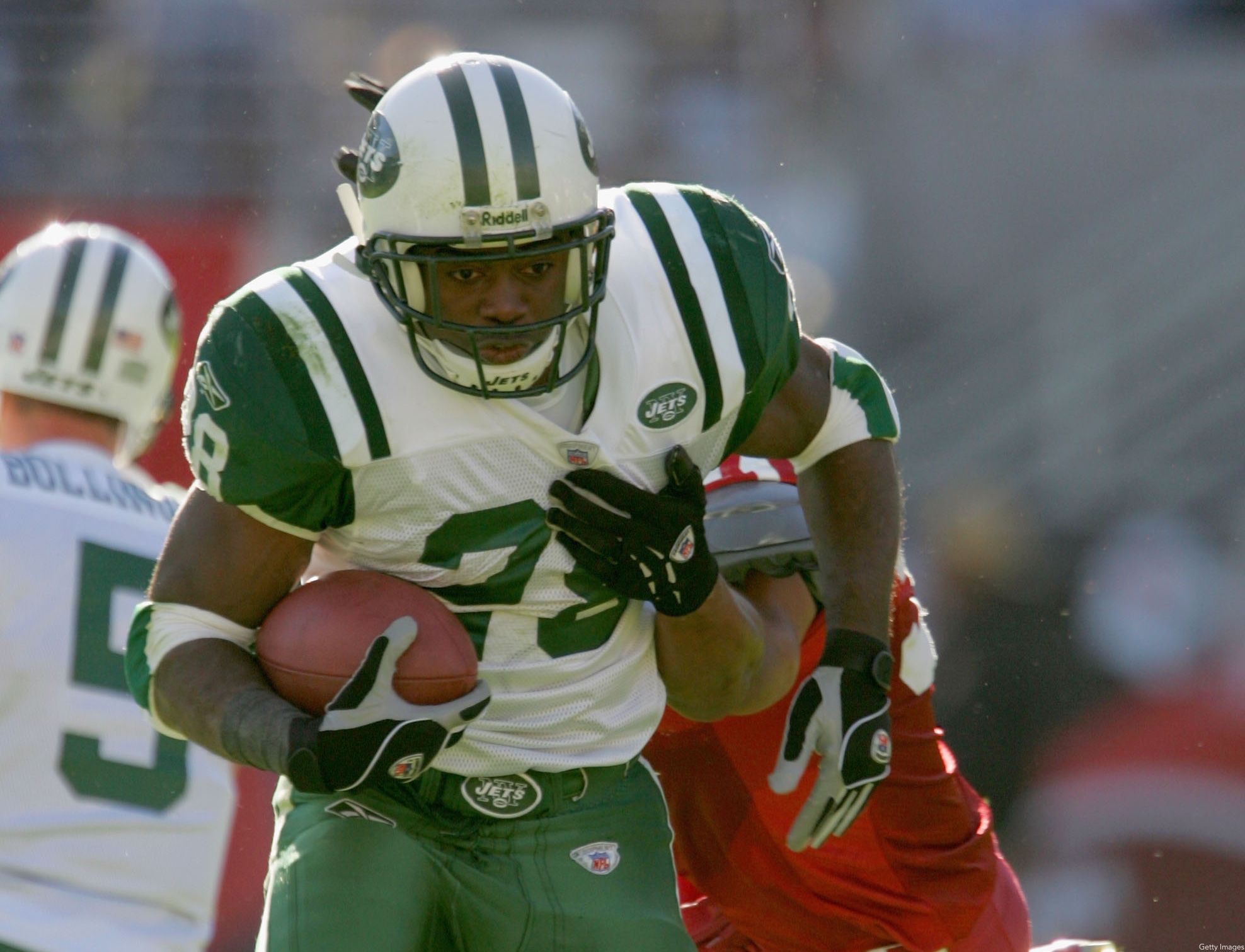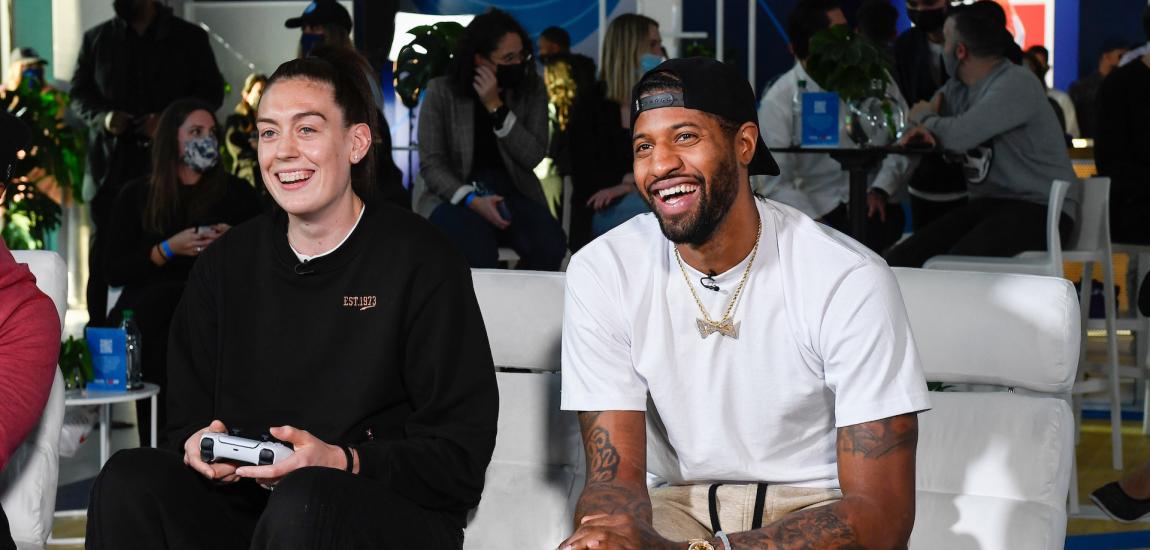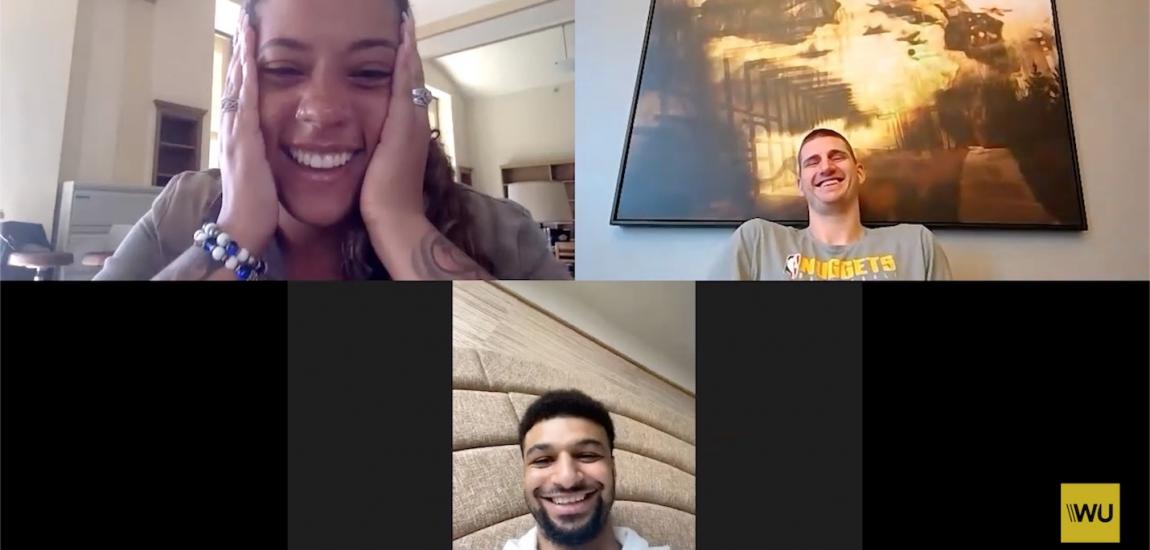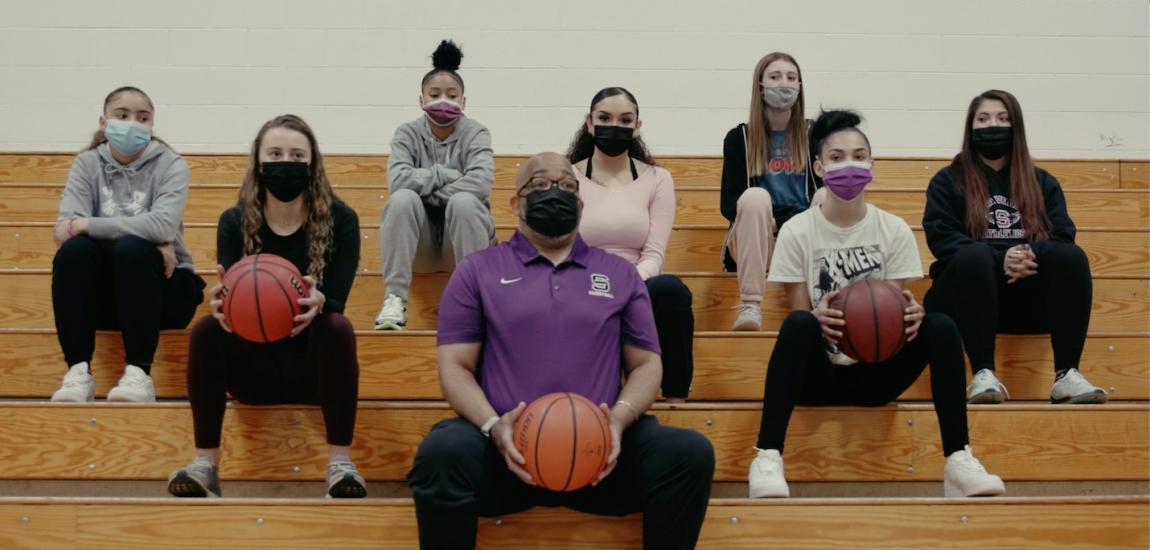In 2015, Adrian Peterson led the NFL in rushing attempts with 327. He was the only running back to take more than 300 handoffs, with Doug Martin's 288 coming in second. Curtis Martin surpassed the 300 mark eight times in his 11 NFL seasons. He exceeded Peterson's 327 six times, including 368 as a rookie. Martin's 3,518 rushing attempts are third all time (behind Emmitt Smith and Walter Payton) and his 14,101 yards are fourth (behind Smith, Payton and Barry Sanders). Martin spoke to ThePostGame on the NFL's devaluing of the running back, the changing perception of concussions among players and Tim Tebow's lost football career.
ThePostGame: When an NFL season starts, what are you thinking about?
CURTIS MARTIN: How no one knows who's going to rise to the top. That's what makes the NFL such an interesting and popular sport. There's this mystery at the beginning of every season. You look at certain teams, and it's not like the NBA, where you can look at the Golden State Warriors and say, they got Kevin Durant, they're definitely going to the championship. And they're probably going to play the Cleveland Cavaliers in the Finals. You're at least 85-90 percent right. In the NFL, we can look at the Carolina Panthers, the New England Patriots, and you can make your assumption, but who would have thought Tom Brady would be out four games?
TPG: The running back ... people in the draft don't value the position the way they used to. In Fantasy Football, you see a lot of rookies and young players ranked higher than some big names. Do you think teams are undervaluing the running back as a more recyclable position than it used to be?
MARTIN: The game has changed right now from what it used to be. The NFL is cyclical. It's a cycle that will repeat itself. It's going to come back to really good offensive lines and hard-nosed, workhorse running backs. It's just the season the NFL's in right now, where quarterbacks, wide receivers, cornerbacks and people who can rush the passer are valued. The running back has been undervalued for a few reasons. Not because the running backs are not as good, but I just don't think running backs are required to do as much. They usually have a different running back per down. When I played, we went from first to fourth. I think there was a larger load on our backs. You only have a few guys like that in the NFL today: Adrian Peterson. Le'Veon Bell. Marshawn Lynch and he's out. Those are the guys who still keep their value.
TPG: Why do you think that has happened where teams want to mix different backs by down?
MARTIN: What they saw was that there are very few running backs that can endure that type of pounding, day-to-day for an entire season. They were putting a lot of money into this guy, but he takes one freaky hit, and he's out for the season and misses several games. I think they've looked at it as OK, let's find three or four guys, so if I'm top running back goes down, we're not searching. Our running game doesn't just go to crap. So they have three or four running backs and you really don't know who the first guy is anymore because they're so interchangeable.
TPG: Did you feel like you could take that pounding first to fourth down?.
MARTIN: Oh yeah, I took it. I took it for 11 years, and I carried the ball during that span of time more than any other running back, so I averaged at least 300+ times touching the ball a year. That's what I enjoyed though. That's when I was at my best.
TPG: People talk about health post-NFL. You had a lot of carries and took a lot of hits. How do you feel in your post-NFL career and what do you think about the NFL's approach to safety?
MARTIN: I feel great. I think that the NFL's doing a great job, according to safety. Concussions, that's the huge issue. I think the only way to bring some sort of solution to that scenario is to bring awareness. That's what's going to make this concussion situation a lot better. When I played, you can have a concussion, and when you have one, you really don't know that you have it because you're not in the right mind. Now, they have people who will spot you from up in the towers with binoculars, and referees are more aware of it. Even your own teammates, they become so aware that they can even suggest you go out of a game. When I played, it just wasn't like that. That's a huge credit to the impact the NFL has had on bringing awareness.
TPG: When you look back on your career, do you think you had concussions you just didn't know about?
MARTIN: Oh, I got used to concussions. I knew I had them. I just didn't think of concussions as something you came out of the game for. When I played, if you came out of the game talking about how you have a concussion, you were considered very soft. I remember we were in practice, and our fullback went into the hole and he blocked someone, and he got up and was stumbling, and falling back down. We had to hold him up and we were all laughing at him. But if he would have said, "I'm not going to play this game coming up on Sunday," we would have called him the biggest punk in the world. You see, today, what's good is we understand it has nothing to do with toughness. It's more about protecting you for the future. The mentality is different, so we approach concussions differently, even from a player's perspective. I think that's due largely to how the NFL has educated the players.
TPG: You live in New York. How often do you get recognized on the street?
MARTIN: All the time. It's rare that I go out of my house and don't stopped several times. Usually, I have a baseball hat on and I wear it down and get by some people, but even with that, I get recognized. I was never a guy that put myself out there. But New York, they know they're guys. I think I'm one of the guys in New York they have respect for and I get recognized a lot.
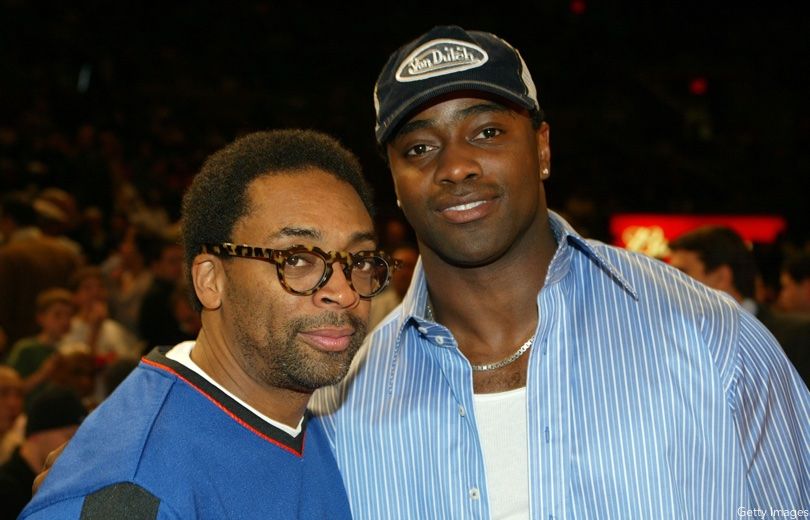
TPG: A former Jet is coming back to New York: Tim Tebow [to the Mets]. Not that you played with him, but what is your perspective on a guy like that, who couldn't find his way in the NFL, going into a new sport, baseball, at age 29?
MARTIN: Sometimes, you have to pivot in life and that's what he's doing. I always thought that he'd get another shot even if it was just based on what he did in Denver that one year. He's somewhat proven himself to be a winner. I don't think since that time in Denver, he's had the opportunity to consistently be in the game like that. It's unfortunate for him. I made a bet one time eventually, he'd be the No. 2 quarterback somewhere. It didn't happen for him.
TPG: It's not over yet.
MARTIN: (Laughs) Yeah, it's not over.
TPG: You saw him with the Jets. Did you think he would play more on that team?
MARTIN: I thought he'd get more of a chance. I don't think he got a chance with the Jets.
TPG: What are doing with Verizon and the NFL?
MARTIN: Verizon is giving NFL fans more access to more football this season with their LTE-advanced service. It's the nation's largest and fastest 4LTE network. It's good for me because it's very authentic because this is mostly how I get my information about the NFL. I'm not a sit-in-front-of-the-TV and watch-the-whole-game-type of guy. I watch the highlights. Mainly, I watch NFL RedZone. I'm usually in the airport or traveling or doing something somewhere. This is how I keep up with the NFL on my NFL Mobile app.
TPG: A lot of people think former players are NFL junkies taking in every game ...
MARTIN: I know, but I've never been a big football fan of watching the game, but I really like keeping up with the highlights.
-- Follow Jeffrey Eisenband on Twitter @JeffEisenband.


